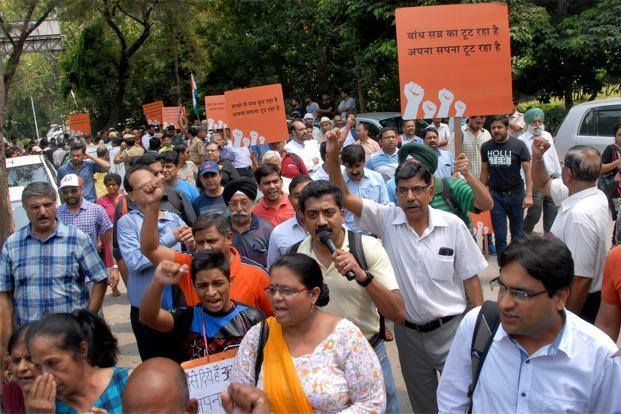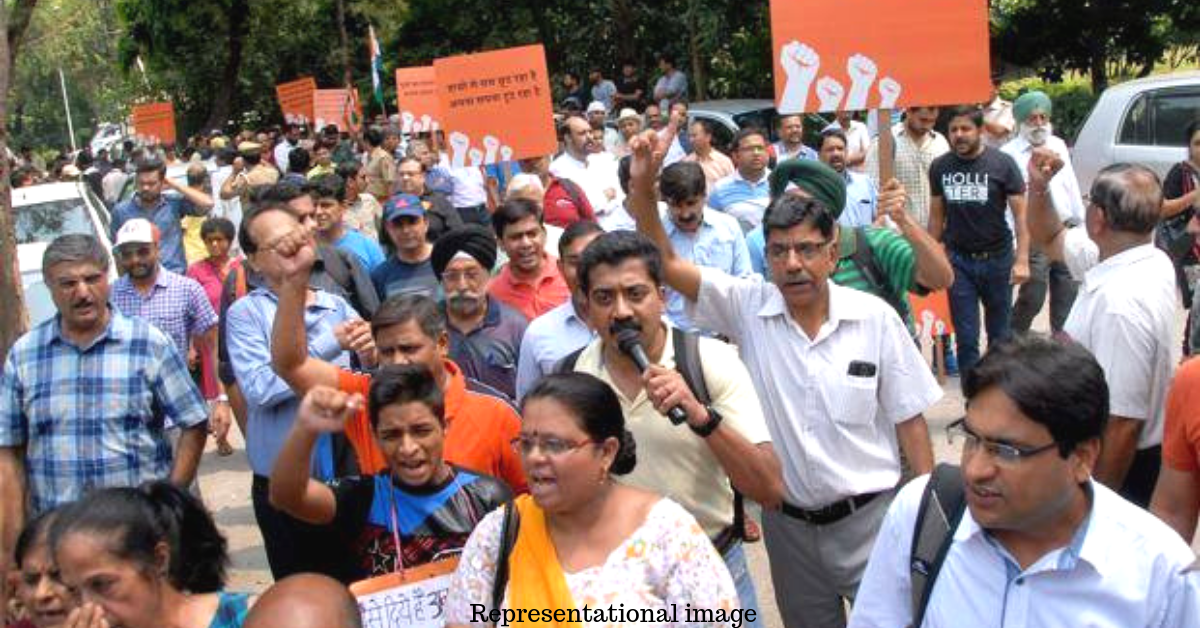Pradeep Kumar (name changed) is a 35-year-old Software Consultant residing in Delhi. At the insistence of his family, he decided to invest in an apartment being built by a well-known real estate developer in the city. The developer’s good presence in the market was why Pradeep used up almost all of his savings for the apartment.
Unfortunately, after paying 65 per cent of the amount toward the apartment, Pradeep got to know about the developer defaulting on bank loans and going bankrupt. And that was when Pradeep’s battle began. For the last two years, he, and other home buyers like him ran from pillar to post trying to sort out the mess to get their money back.
Such has been the plight of several home buyers across India in the last few years impacted severely by the insolvency-hit developers.
If you are looking to spruce up your garden or patio then we have just the thing for you. Check out these Macrame plant-holder handmade by women artisans here.
Until 9 August 2019, home buyers in India were treated as unsecured creditors who came after secured and institutional creditors in terms of priority for recovery of dues. With the Supreme Court’s decision to treat home buyers as financial creditors, homebuyers have much to cheer about.
In 2018, President Ram Nath Kovind gave his stamp of approval to an ordinance amending the Insolvency and Bankruptcy Code (IBC), putting home buyers on par with banks as financial creditors.
So what does this mean?

The bankruptcy code defines a financial creditor as, ‘A person to whom a financial debt is owed and includes a person to whom such debt has been legally assigned or transferred’. Till now, this definition did not include home buyers who were seen as operational creditors which means that the money they give to the developer was in return for a product or a service, and not treatable as a loan. This clause put home buyers at a severe disadvantage if the developer went bankrupt.
In case a developer filed for insolvency, the home buyers would be faced with a double whammy – one that they will not receive their asset (home) as promised, and two that they had no recourse against the developer to recover anything; in essence, they were at the mercy of the developer.
But the apex court’s order changes the equation as it puts homebuyers on par with banks who have lent the developer money and gives them a significant voice, and leverage in negotiations.
Salient features of the order:
· Homeowners’ rights are now on par with lenders such as banks and other financial institutions.
· Homeowners now have the right to take real estate developers into bankruptcy proceedings.
· In case of liquidation of assets, homeowners will also be eligible to be paid off immediately along with other institutional lenders.
· Justices R F Nariman, Sanjiv Khanna and Surya Kant passed this order in the Pioneer Urban Land and Infrastructure Ltd Versus Union of India case. In so doing, the three-judge bench disposed of over 180 petitions filed by real estate developers challenging the constitutional validity of the amendments made to the Insolvency and Bankruptcy Code in 2018.
· The regulations listed out in Real Estate Regulatory Authority (RERA) need to be read harmoniously with those of the IBC, and in case of a conflict, the IBC will prevail.
· Once the homeowner establishes that prima-facie a default has taken place, then the onus shifts to the real estate developer to prove the homeowner himself is a defaulter and therefore would not be eligible for any relief under the Act.
· With this order, homeowners can now initiate the process to have the management of the real estate development firm changed to ensure smoother operations.
· In addition, being financial creditors, they are entitled to be represented in the Committee of Creditors (CoC) by authorised representatives.
· The real estate developer will now have to make a declaration supported by an affidavit, stating the time period within which the project shall be completed. Seventy per cent of the amount realised for the project from the allottees will be deposited in a separate account, used only towards that particular project.
· Registration will be granted only after ascertaining that the promoter is bonafide and is likely to perform his part of the bargain satisfactorily.
· While this order further ensures that investments made by homeowners are recovered efficiently, it also promotes resolution over liquidation.
Welcoming this order, Punit Dutt Tyagi, executive partner at law firm Lakshmikumaran & Sridharan Attorneys, in a report published here, says, “The decision to include home buyers under the ambit of financial creditors will be received with a cheer. Several developers have misappropriated funds of home buyers, whose position in the resulting insolvency proceedings has been the topic of speculation for a while now. The decision to end this uncertainty is a step in the right direction.”
Over the past few years, the courts have been very proactive in protecting the rights of homeowners and buyers.
In 2018, the RERA, in what is being looked at as a landmark judgement, ordered JVPD Properties Private Limited to refund Rs 7.10 crore along with 15 per cent interest to 21 aggrieved homebuyers. While many awards to affected homebuyers have been passed before, this order is unique as it potentially blocked a significant loophole in the real estate regulations. You can read all about that case here.
In case you are an aggrieved homeowner, this article explaining which adjudicating body to approach to seek relief might throw some light on your predicament.
While there are various laws to protect the interests of homeowners, you must practice diligence before investing in a real estate development project.
Remember the old Latin adage – Caveat Emptor – Buyer Beware!
(Edited by Saiqua Sultan)
Like this story? Or have something to share?
Write to us: contact@thebetterindia.com
Connect with us on Facebook and Twitter.
We bring stories straight from the heart of India, to inspire millions and create a wave of impact. Our positive movement is growing bigger everyday, and we would love for you to join it.
Please contribute whatever you can, every little penny helps our team in bringing you more stories that support dreams and spread hope.

